Bass Lab welcomes Atty. Lee Merritt for the latest iteration of The Second Draft Project
By Annie YangOn October 8 and 9, 2024, the USC Bass Lab welcomed Attorney Lee Merritt to participate in the Second Draft Project, which will compile clips from his interview and use AI to turn them into responses to questions from students and faculty.
A full frontal view of Lee Merritt, as he will appear in the interactive exhibit.
Throughout his career as a civil rights attorney, he has played a role in several pivotal cases, including those of Atatiana Jefferson, Botham Jean, Ahmaud Arbery, and Jordan Edwards. Professor Allissa Richardson, founder and head of the Bass Lab, asked questions covering a wide range of topics, from mental health to his role in the civil case of George Floyd’s murder.
Attorney Merritt grew up in South Central Los Angeles, where community unrest posed an omnipresent threat. Inspired by Denzel Washington in Philadelphia, he became interested in law. Recognizing that education was the key to success, he attended Morehouse College, where he learned that “[Black men] could compete on every level, not just sports and music through rap battles and cyphers.”
Morehouse shaped his character, teaching him what it meant to be great, with his teachers “radicalizing the way [he] viewed the world.” This was also where he got his first exposure to advocacy work as he fought for his fellow students in student government. He then attended Temple Law in Philadelphia, and it would be his evidentiary law professor who would have the most powerful influence on his approach to the law.
Lee Merritt smiles for the camera before the interviews begin.
Since passing the bar exam, he has been involved in several high-profile cases centered around racial justice. Attorney Merritt argues that “the system was not designed to hold police accountable,” and he fights to instill “the idea that we can force the system to realize that Black lives matter.” Using his expertise and voice as vehicles, he works to end the culture of police violence and has been chipping away at it case by case.
He helped the family of Atatiana Jefferson receive justice, where “Officer Aaron Dean was convicted for [her] murder and was sentenced to 11 years.” However, he emphasizes that “there’s no real way to value a human life, and that’s one of the hardest things about being a civil attorney.”
This philosophy followed him to the George Floyd case, where he was a public advocate of the family. Attorney Merritt stresses that he “was not involved in the murder trial of Derek Chauvin of the murder of George Floyd… wasn’t even involved in the civil trial in the federal case.” However, by working with the family and the community, he helped bring the George Floyd Justice and Policing Act to the Capitol. The Act addresses monumental shortcomings in policing policy.
Even as a Black man, Lee Merritt was so occupied with being a father and advocate for families victimized by racial injustice that he wasn’t able to process the emotional consequences of his work — at least for a while. But he soon found an emotional emissary from the Island of Staten: Method Man.
Lee Merritt opens the second day of interview questions with a powerful poem.
It wasn’t until he listened to Method Man’s struggles with lifelong depression that he realized how the rapper’s behaviors had been mirroring his own. For example, both showed similar symptoms of mental duress. Attorney Merritt slept in the closet. Method Man slept in the bathtub. And Attorney Merritt was abnormally irritable with his children. That was when he knew that “mental health would have to be a regular practice” in his daily routine.
While he pours himself into his cases and the communities he represents, he’s also “learned to create a professional boundary to do [his] work when [he’s] committed to do [his] work — but retreat off hours to protect [his] peace.” He also practices poetry and rap, and he shared some of his work with the Bass Lab team.
Lee Merritt poses for a photo with Dr. Allissa Richardson and USC’s Digital Repository team.



